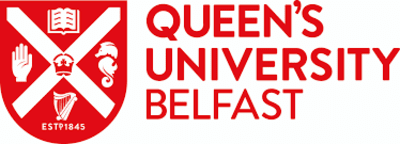
BSc in Business Information Technology Incl Professional Experience
Queen's University Belfast

Key Information
Campus location
Belfast, United Kingdom
Languages
English
Study format
On-Campus
Duration
4 years
Pace
Full time
Tuition fees
GBP 18,800 / per year *
Application deadline
Request info
Earliest start date
Request info
* international fee
Introduction
Much of today's business operates in a dynamic, fast-paced and technologically advanced environment. With the future of business looking set to rely even more heavily on technology. Companies require talented individuals who can bridge the gap between business management and technology, forge new connections and foster continuing innovation in their industries.
Studying Business Information Technology at Queen’s gives you a sound knowledge of information technology fundamentals and their application in business. Additionally, this course provides a firm foundation in business management. Delivered in partnership with Queen's Management School (QMS) this allows our graduates to address a growing global need for capable and confident leaders in varied business environments.
Belfast is uniquely placed to offer opportunities for Business Information Technology graduates. There are more software companies located in Northern Ireland than in any other part of the UK, outside of London. Additionally, Queen’s University has links with businesses across the globe, including over 500 local, national and international IT companies. Employer experience is embedded into this course and allows students to engage and learn from prospective employers from day one.
Business Information Technology Incl Professional Experience Degree Highlights
Belfast is in the world’s top 10 Digital Economies of the Future - the only UK city outside London to be listed (Financial Times’ fDi Intelligence, 2018)
Career Development
- Students taking this program may spend a year gaining professional experience in the industry in a paid full-time post. Students are helped to obtain suitable places and the School has excellent links with over 500 local, national, and international employers such as Citi, BT, Liberty IT, Kainos in Belfast, IBM in England, Microsoft, and Sun Microsystems in Dublin, Fujitsu in Japan and Siemens in Germany.
World Class Facilities
- The School of Electronics, Electrical Engineering, and Computer Science has a world-class reputation for research and provides excellent facilities, including access to major new research centers in Secure Information Technologies (CSIT), Electronics, Communications and Information Technology (ECIT), and Sonic Arts (SARC).
Internationally Renowned Experts
- Many of our staff are leading international experts in their fields of research. Queen’s is one of the 24 world-class universities that make up the Russell Group in the United Kingdom and is the only Russell Group University in Northern Ireland.
Admissions
Scholarships and Funding
How do I fund my study?
There are different tuition fees and student financial support arrangements for students from Northern Ireland, England, Scotland, and Wales (Great Britain), and those from the rest of the European Union.
Scholarships
Each year, we offer a range of scholarships and prizes for new students.
International Scholarships
Curriculum
Course Structure
Introduction
The Single Honours Business Information Technology degree comprises compulsory modules together with optional modules.
Due to the nature of change in the IT Industry it may be that the modules will be changed to keep up with industrial trends.
Stage 1
May include topics such as :
- Accounting
- Databases
- Organisational Behaviour
- Fundamentals of Programming
- An Introduction to Economics
- Business, Government and Society
- Marketing
Stage 2
- May include topics such as:-
- Professional Computing Practice
- Software Development, Processes and Practice
- Information Management
- User Experience Design
- Operations Management
- International Business
- Human Resource Management
- Data Statistics
- Leading for Change
Stage 3
- Year of Professional Experience
Stage 4
- May include topics such as:-
- Working on a Project
- Information Systems in Organisations
- Supply Chain Management
- Business Ethics
- Innovation Management
- Public Sector Management
- Strategic Management
- Information Policy
- Customer Behaviour
- Data Analysis and Visualisation
- Network Security
Learning and Teaching
The BSc in Business Information Technology including Professional Experience is a shared programme with Queen's Management School and provides a range of learning experiences which enable students to engage with subject experts, develop attributes and perspectives that will equip them for life and work in a global society and make use of innovative technologies and a world class library that enhances their development as independent, lifelong learners. Examples of the opportunities provided for learning on this course are:
- E-Learning technologies
Information associated with lectures and assignments is often communicated via a Virtual Learning Environment (VLE) called Queen’s Online. A range of e-learning experiences are also embedded in the degree through, for example, interactive group workshops in a flexible learning space; IT and statistics modules; podcasts and interactive web-based learning activities; opportunities to use IT programs associated with design in practicals and project-based work, etc. - Lectures
Introduce basic information about new topics as a starting point for further self-directed private study/reading. Lectures also provide opportunities to ask questions and gain some feedback and advice on assessments (normally delivered in large groups to all year group peers). - Personal Tutor
Undergraduates are allocated a Personal Tutor during Stages 1 and 2 who meets with them on several occasions during the year to support their academic development. - Practicals
Where you will have significant opportunities to develop technical skills and apply theoretical principles to real-life or practical contexts. Comprehensive demonstrator support is provided – typically one demonstrator per 8-10 students. You will be expected to attend a number of practicals each week. - Projects and teamwork
A number of modules throughout the degree will use supervised projects as a means of enabling you to put your technical understanding into practice. The extensive use of team based projects from first year will provide you with the opportunity to develop skills widely used by employers. In final year, you will be expected to carry out a significant piece of research on a topic or practical methodology. You will receive support from a supervisor who will guide you in terms of how to carry out your research and will provide feedback to you. - Self-directed study
This is an essential part of life as a Queen’s student when important private reading, engagement with e-learning resources, reflection on feedback to date and assignment research and preparation work is carried out. - Seminars/tutorials
A number of modules will make use of seminars/tutorials (typically 10-20 students). These provide an opportunity for students to engage with academic staff who have specialist knowledge of the topic, to ask questions of them and to assess their own progress and understanding with the support of peers. You should also expect to make presentations and other contributions to these groups. - Work placements
A student taking this programme is required to spend a year gaining professional experience in industry in a paid full-time post. Students are helped to obtain suitable places and the School has excellent links with over 500 local, national and international employers such as Microsoft, Liberty IT, Kainos, IBM,Deloitte, BT, Citi Group, SAP and Dell. It is expected that students will gain a Licentiateship of the City and Guilds from this period of work experience.
Assessment
Details of assessments associated with this course are outlined below:
- The way in which you are assessed will vary according to the Learning objectives of each module. Some modules are assessed solely through project work or written assignments. Others are assessed through a combination of coursework and end of semester examinations. Details of how each module is assessed are shown in the Student Handbook which is provided to all students during their first year induction.
Feedback
As students progress through their course at Queen’s they will receive general and specific feedback about their work from a variety of sources including lecturers, module co-ordinators, placement supervisors, personal tutors, advisers of study and peers. University students are expected to engage with reflective practice and to use this approach to improve the quality of their work. Feedback may be provided in a variety of forms including:
- Feedback provided via formal written comments and marks relating to work that you, as an individual or as part of a group, have submitted.
- Face to face comment. This may include occasions when you make use of the lecturers’ advertised “office hours” to help you to address a specific query.
- Placement employer comments or references
- Online or emailed comment
- General comments or question and answer opportunities at the end of a lecture, seminar or tutorial.
- Pre-submission advice regarding the standards you should aim for and common pitfalls to avoid. In some instances, this may be provided in the form of model answers or exemplars which you can review in your own time.
- Feedback and outcomes from practical classes
- Comment and guidance provided by staff from specialist support services such as, Careers, Employability and Skills or the Learning Development Service.
- Once you have reviewed your feedback, you will be encouraged to identify and implement further improvements to the quality of your work.
Program Tuition Fee
Career Opportunities
More than ever, there is a real need for skilled managers in the contemporary, technology-driven environment. Those managers will be required to have an understanding of the fundamental principles of Computer Science, Information Technology, and Management with an emphasis on the application of advanced information technology in a business environment. Employers, from large multinational firms to small local organizations, actively target our students, recognizing that Queen's Business Information Technology graduates are equipped with the skills they need. Even with the recession, current industry analysis indicates that there is a shortage of IT graduates and this trend is forecast to continue.
On graduating with an Honours degree and a year's experience, graduates are able to choose from a host of rewarding and challenging careers in industry, commerce, education, and research. Many graduates take up posts associated with management and finance working in contemporary, technology-driven environments, while others undertake research.
Degree plus award for extra-curricular skills
In addition to your degree programme, at Queen's you can have the opportunity to gain wider life, academic and employability skills. For example, placements, voluntary work, clubs, societies, sports, and lots more. So not only do you graduate with a degree recognized by a world-leading university, you'll have practical national and international experience plus a wider exposure to life overall. We call this Degree Plus. It's what makes studying at Queen's University Belfast special.
Student Testimonials
English Language Requirements
Certify your English proficiency with the Duolingo English Test! The DET is a convenient, fast, and affordable online English test accepted by over 4,000 universities (like this one) around the world.